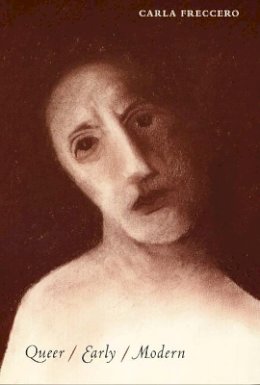7%OFF

Stock image for illustration purposes only - book cover, edition or condition may vary.
Queer/Early/Modern
Carla Freccero
€ 31.99
€ 29.81
FREE Delivery in Ireland
Description for Queer/Early/Modern
Paperback. Argues for a reading practice that accounts for the queerness of temporality, for the way past, present, and future time appear out of sequence and in dialogue in our thinking about history and texts. This book urges us to see how the indeterminacies of subjectivity found in literary texts challenge identitarian constructions. Series: Series Q. Num Pages: 192 pages. BIC Classification: 3JB; HBG; HBLH; JFSK. Category: (P) Professional & Vocational. Dimension: 5969 x 3887 x 14. Weight in Grams: 286.
In Queer/Early/Modern, Carla Freccero, a leading scholar of early modern European studies, argues for a reading practice that accounts for the queerness of temporality, for the way past, present, and future time appear out of sequence and in dialogue in our thinking about history and texts. Freccero takes issue with New Historicist accounts of sexual identity that claim...
Read moreProduct Details
Format
Paperback
Publication date
2006
Publisher
Duke University Press United States
Number of pages
192
Condition
New
Series
Series Q
Number of Pages
192
Place of Publication
North Carolina, United States
ISBN
9780822336907
SKU
V9780822336907
Shipping Time
Usually ships in 7 to 11 working days
Ref
99-1
About Carla Freccero
Carla Freccero is Chair of the Department of Literature and Professor of Literature, History of Consciousness, and Women’s Studies at the University of California, Santa Cruz. She is the author of Popular Culture: An Introduction and Father Figures: Genealogy and Narrative Structure in Rabelais and a coeditor of Premodern Sexualities.
Reviews for Queer/Early/Modern
“Carla Freccero’s beautifully written book offers a strong, persuasive, and new way of reading queer early modern texts. Refusing the historicist view that would draw fierce lines between premodern and modern, Freccero asks her reader to consider premodern texts as intervening in the logic of their times and persisting within modernity in spectral form. Her intense engagement with queer early...
Read more